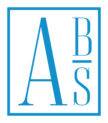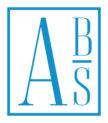If you’re looking to open or you own a small business in Canada, there are many things to consider. It’s not just the location and adapting to various seasons surrounding your new venture, but also the taxes on small businesses. Those with a personal income tax and CPP/EI premiums need to be aware of their responsibility to hire staff or operate entirely on their own regarding paying taxes.
Canadian Revenue Agency (CRA) Tax Levy on Small Businesses
The CRA may not just monitor your business finances but also your finances. If you plan to open up a small business and need to register with the Canadian tax regulations, you will have more than enough paperwork to file. While this may be a bit of a hassle when first starting out, it is something that you should try to keep up with on both ends. Book an appointment with us today to understand your responsibilities as a small business owner. Apart from corporate tax, you may also be responsible for these types of taxes
- Sales Tax – If you are registered to collect sales tax, you must comply with your sales tax return and payment schedule as instructed by CRA
- Payroll Liabilites – If you hire employees, you are responsible for withholding payroll taxes, CPP and EI from your employees’ paycheck and remitting them to CRA by the due date. You are also responsible for the employer portion of CPP and EI.
Both of these taxes are held by you in trust and failure to pay CRA these taxes can result in high penalties and interest on amounts due.
Income Tax for Small Business Owners
The CRA is your financial partner regarding taxes. When you set up your business, one of the benefits you will receive from the government is a lower corporate income tax rate. The tax rate for an Ontario-based Canadian-controlled company or CCPC, in short, can be as low as 12.5%, whereas individuals who earn up to $45,142 in Ontario pay 20.05% in personal taxes. This may not be the main reason why the CRA is so important, but that is the minimum required to set up a business in Canada. The Canadian tax regulations are also responsible for ensuring that your income tax is paid on time, and you will get a tax notice if you don’t file your forms on time. The penalty for filing late varies according to the type of taxes being omitted; there are also various rates on how much you’ll have to pay. If you’re unsure about the different tax filing deadlines, now is the best time to seek professional advice from us. Do not wait till CRA sends you a notice for failure to file.
Does Business Structure Influence Tax Returns?
Although there may be some differences in tax preparation for incorporated businesses and individuals, the tax returns are fairly similar. You will also receive a Notice of Assessment from the government outlining how much taxes you need to pay for the current and previous years. The deadline for filing corporate income tax and paying your corporate tax liability is different from your personal tax return. As a sole proprietor, you may have filed your business taxes with your personal tax return on or before June 15. However, your corporate tax return is within 6 months of your fiscal year-end.
Conclusion
There are many benefits for small business owners in Canada. If you wish to start your own business in Canada, consider opening a corporation as this significantly reduces taxes and helps protect your personal assets. With professional help, you can also plan your finances to reduce your income tax liability both at the corporate and personal levels. We have also partnered with Ownr to take the pain out of incorporating your business and maintaining your company files as required by CRA.






